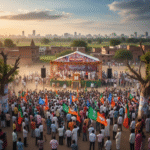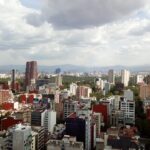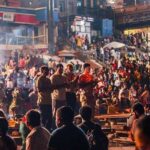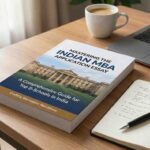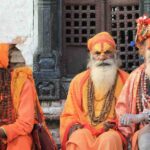Lucknow, 2025 — Uttar Pradesh (UP), India’s most populous state, is often described as the heart of Indian politics. With its staggering 80 Lok Sabha seats and a population exceeding 200 million, the state has the unique power to sway election outcomes at the national level. Its political climate, shaped by a complex interplay of caste dynamics, religious narratives, and developmental aspirations, can significantly influence the success or failure of political parties. This article examines how UP’s political landscape impacts election outcomes, both within the state and across India.
Key Factors in UP’s Political Climate
- Caste Dynamics
- Influence: UP’s electorate is deeply divided along caste lines, with Dalits, OBCs, and upper castes playing pivotal roles. Caste coalitions often determine the electoral fortunes of major parties like the Bharatiya Janata Party (BJP), Samajwadi Party (SP), and Bahujan Samaj Party (BSP).
- Game-Changer: Shifts in caste loyalties or the emergence of new caste-based alliances can disrupt traditional voting patterns, altering election outcomes.
- Religious Narratives
- Communal Polarization: Religious issues, such as those surrounding Ayodhya and minority rights, are frequently used to mobilize voters. The BJP has often leveraged Hindu nationalism to consolidate its voter base.
- Impact: The political exploitation of religious sentiments can galvanize support but also risks alienating moderate and minority voters, influencing election results.
- Development vs. Identity Politics
- Voter Expectations: While identity politics remains influential, there is a growing demand for tangible developmental outcomes, such as improved infrastructure, job creation, and better healthcare.
- Electoral Outcome: Parties that strike a balance between addressing identity issues and delivering on development promises tend to perform better.
Influence of UP on National Elections
- Decisive Parliamentary Role
- National Stakes: With the largest number of parliamentary seats, UP often determines the majority in the Lok Sabha, making it a crucial battleground for any party aspiring to form the central government.
- Policy Focus: Central government policies often prioritize UP’s development to secure its vote bank, indirectly influencing national governance.
- Leadership Proving Ground
- Emerging Leaders: UP’s political climate often shapes national leadership. Leaders like Narendra Modi (representing Varanasi) and Yogi Adityanath have risen to prominence by mastering UP’s electoral dynamics.
- Ripple Effect: Success in UP can catapult leaders onto the national stage, making it a critical proving ground for political strategies.
- Cascading Narratives
- Campaign Themes: Issues that resonate in UP, such as caste inclusion or religious identity, frequently dominate national election narratives, shaping strategies in other states.
Challenges in Navigating UP’s Political Climate
- Fragmented Electorate
- The sheer diversity of UP’s population makes it difficult for any single party to secure a broad-based majority, necessitating complex alliances.
- Polarization Risks
- Over-reliance on divisive issues like caste or religion can deepen societal rifts, creating long-term governance challenges.
- Voter Fatigue
- Frequent elections and unfulfilled promises can lead to voter disenchantment, complicating re-election efforts for incumbent parties.
Conclusion: The Power of UP’s Political Climate
Uttar Pradesh’s political climate holds immense power to make or break election outcomes, both within the state and nationally. Its role as a bellwether for India’s electoral trends ensures that all eyes remain on UP during election seasons. The state’s complex and evolving political dynamics demand adaptive strategies from political parties, as success in UP often translates into success on the national stage.





